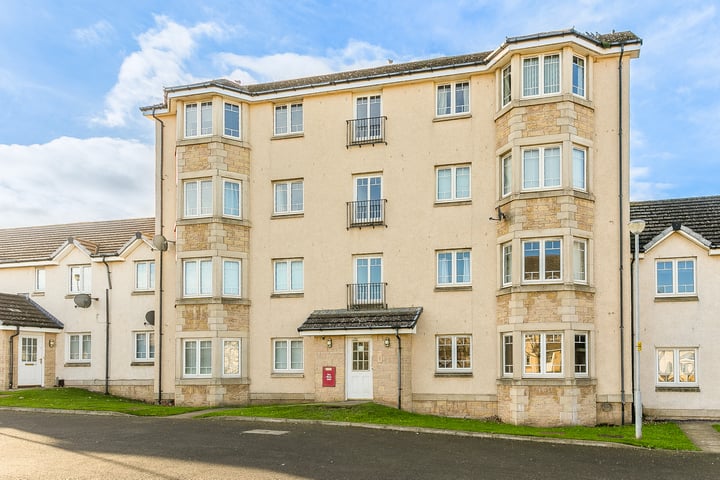This month we take our regular look at property sales and price trends, what might be on the horizon for interest rates, and of course how the recent result of the referendum on the UK’s continued membership of the EU might affect the property market.
Property Sales Activity
The latest figures released by the ESPC for the period between March 2016 and May 2016 show that the number of homes sold and the number of properties coming onto the market, across East Central Scotland has remained fairly static, year on year, when compared with the same period in 2015. Over the last few months we have seen incremental increases, year-on-year. However, despite no significant annual increase this month, buyer demand remains high. This can be seen in the significant decrease in the average time taken for property to sell across East Central Scotland, highlighted in the same report, with property sale times falling from 45 days to 22 days compared with the same period last year.
House Price Trends
Between March 2016 and May 2016 the average selling price across East Central Scotland decreased by 1.5% when compared with the same period in 2015. This decrease is less than the decrease we reported on last month, and indeed on the month prior to that. This lends weight to the assumption it was the introduction of Land and Buildings Transaction Tax (LBTT) in April 2015, which caused a rush to market of higher value properties in the early months of 2015, that pushed the average price up in 2015 and led to an apparent drop in comparable property values in the same period in 2016. Although we can take some guidance from these property reports, it’s always worthwhile bearing in mind that the statistics can flatter to deceive. For more information aboutwhy house price surveys can potentially be misleading, check out our article here.
The Impact of ‘Brexit’ Vote in UK’s EU Membership Referendum
On 23 June 2016, the UK voted in a referendum on whether to remain part of the European Union or to leave it. George Osborne, the Chancellor of the Exchequer, warned prior to the vote that house prices could fall by 10% to 18% by 2018 in the event that the result of the vote was to leave the EU. Critics in the pro-Leave campaign dismissed this as scare-mongering.
As we all know, on 24 June 2016 it was announced that the UK had voted to leave the European Union. This so-called ‘Brexit’ result took many by surprise and immediately caused uncertainty in financial and money markets, with the value of the Pound Sterling falling alongside stocks and share prices. However following this initial shock, the markets and currency exchange rates have begun to recover.
Prior to the vote, a report by ratings agency Moody’s said that a vote to leave would have the biggest impact on the London housing market, which would lead to fewer sales to EU nationals in central London and which, in turn, would lead to lower house prices. This opinion was mirrored by our own article on this Blog, immediately after the result became known. Check out our article here on what we believe the impact on the property market in Scotland will be following the ‘Brexit’ vote.
Relatively little comment has been made by economic commentators or ratings agencies on how prices in the Scottish property market, in particular, would be affected. However, the consensus seems to be that London would take the brunt of any house price fluctuation following a vote to leave the EU.
With the property market in Scotland less reliant on the wealth generated in the City of London, which will be impacted due to market fluctuations due to uncertainty we, at MOV8 have maintained, prior to the result, that a ‘Brexit’ vote would be unlikely to massively affect the Scottish property market.
Scotland, of course, is not immune to wider economic trends and if the UK economy as a whole is negatively affected in the long term by the result of the vote, it will surely affect the property market in Scotland, should we experience wider unemployment or mortgage liquidity issues. Markets do not like uncertainty and the shock of the result has caused a large degree of uncertainty, not only in the UK market but global markets as we have seen in the days since the result.
Sky News reported the Nationwide Building Society as having said, “Ultimately conditions in the housing market will be determined by conditions in the wider economy, especially the labour market.” The added that, while most economists agree that uncertainty arising from the EU vote will have a short term impact on investment and hiring, much will depend on the outcome of negotiations with Brussels.
The article continued by saying that a factor behind past price growth has been a shortage of homes failing to match high demand. This is certainly what we have experienced at MOV8, with property sales consistently outstripping the supply of new properties that we have been bringing to the market in recent months, leading to highly competitive situations in most of the property sales that we have handled in that period.
‘Money Saving Expert’ and consumer champion, Martin Lewis, stated in an article on his website that, “Overall, my suspicion (and this is pure guesswork) is that interest rates will remain roughly similar to as they are now, or perhaps be cut a touch if things go wrong.”
When interviewed by The Guardian newspaper, Lewis reacted to the suggestion that the Bank of England was prepared to inject an additional £250bn into money markets to ensure that financial institutions did not run short of cash, leading to bond yields falling, which may translate through to more sub-2% fixed-rate mortgages appearing in the coming days. Lewis’s reaction to this was, “Though there’s a chance things could get even cheaper, the safer option is to bag a cheap deal right now, rather than playing the markets.”
When it comes to the question uppermost in the minds of many young adults – should I still go ahead and buy a home, given the concerns about house price falls – Lewis said: “A number of people have been asking if they should complete on the house they’re in the process of buying. If it’s the house that’s right for you, it’s within your budget and you’ve got a decent mortgage that you can afford, then I think the best human decision, if not financial, is to carry on and go for it.”
With the result being declared only days ago, it is simply too early to judge the wider, long term impact on the property market in Scotland. That being said, with the Scottish property market being in the enviable position of not being as impacted by fluctuations in the City of London, where we believe the property market will be negatively impacted, it could be seen as a safe haven during volatile market conditions and Scotland represents a potentially safer market.
Interest Rates Remain Unchanged
This month, the Bank of England’s Monetary Policy Committee (MPC) voted once again, unanimously, in favour of keeping the Bank Rate (commonly referred to as ‘The Bank of England Base Rate’) at 0.5%.
At June’s meeting, the Bank of England’s interest rate decision took a back seat once again to the bank’s comments on the economic impact of a vote to leave the EU in the then upcoming referendum on 23 June 2016.
Rates have been on hold since March 2009, when the committee first cut the Bank Rate to 0.5%. May’s decision marks 87 consecutive months of the same base rate.
Following on from the ‘Brexit’ vote announced on 24 June 2016, economists spoke about the Bank of England potentially reducing interest rates as they forecast slower economic growth, and their gross domestic product (GDP) forecasts for the remainder of this year, and years to come.
Howard Archer, chief economist at economics firm IHS Global Insight, said they expected the base rate to be cut to 0.25% ‘before long’, while David Tinsley, UK economist at UBS, said the Bank of England may cut rates to zero by no later than February 2017.
Martin Beck, senior economic advisor to the economic forecasting group EY ITEM Club, said it was more likely that the Bank would inject more money into the economy than cut rates, although a rate cut was ‘plausible’.
It remains to be seen which of the experts are right, but the longer that interest rates and therefore mortgage rates remain at historically low levels, the longer the housing market will benefit from increased affordability of mortgage finance, and therefore of housing, for property buyers in the UK.
Get in touch!
As ever, if you’re thinking of buying or selling a property or if you have any other questions about the contents of this month’s news round-up, please do feel free to get in touch with our property experts today on 0345 646 0208 or by emailing [email protected] and one of our team will be delighted to help you.






Leave a Reply